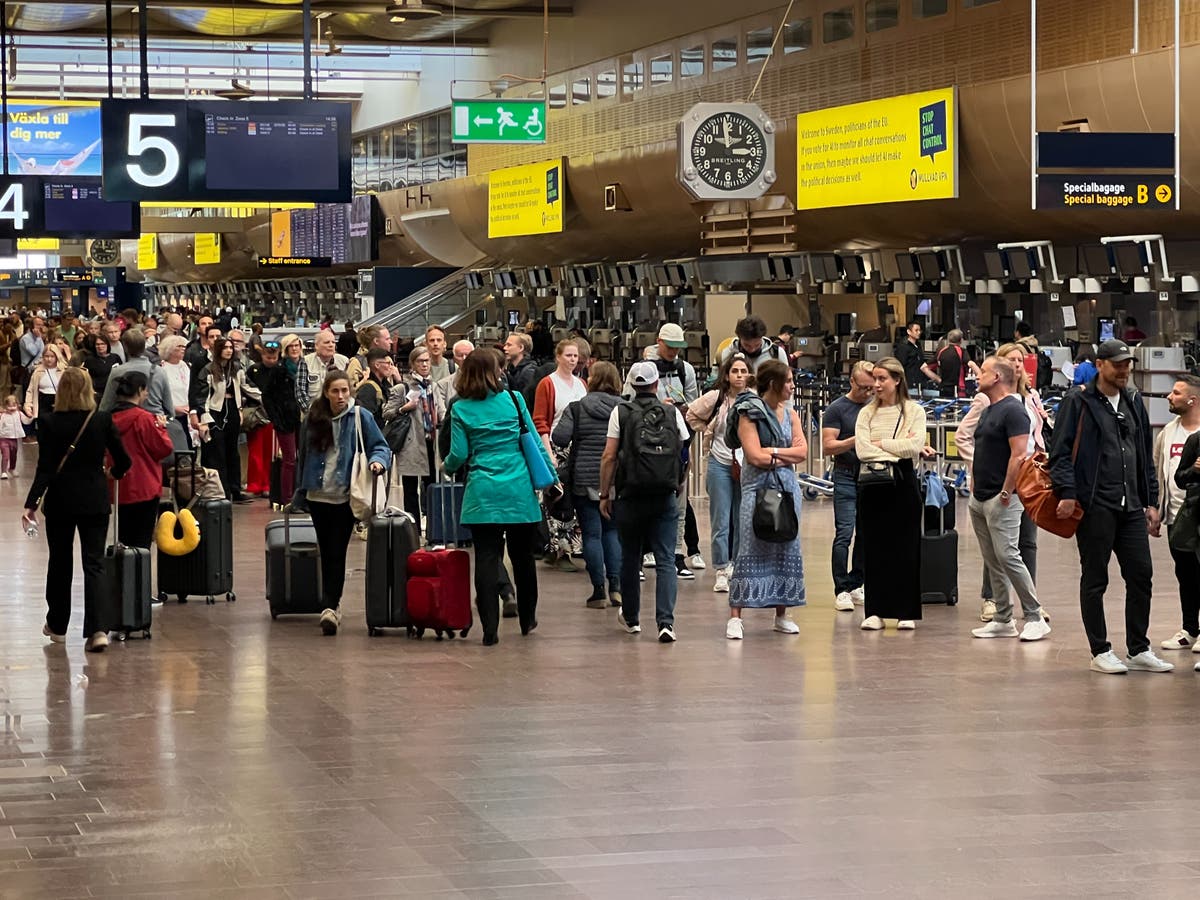My working week began, unusually, at the exit gates from the Heathrow Express at London Paddington station. The reason: the current UK Border Force strike at Heathrow airport had begun. The airport authorities had politely declined my request to report from the scene on how the walkout by passport control staff was affecting inbound passengers. The next best thing: asking those travellers who had taken the fast route to central London about their border experience.
Try as I might, I could not find anyone who had encountered any significant queue.
“Super fast”, reported a gentleman who had just arrived from Dallas before he hurtled off for his meeting. Angie, a Delta passenger from Boston, told me: “It was kind of ridiculously easy – no people in front of me. I put my passport down [for the eGate], it beeped and I was through.”
Some passengers, particularly those from the many countries ineligible to use the eGates, may have faced longer waits. But at that very moment, travellers from Stansted and Birmingham airports were missing flights because of long queues.
Alice and her husband had arrived at Stansted at 6.30am for an 8.55am departure to Alicante. They had even booked fast-track security. But a power failure slowed security and they missed their flight by minutes. A Stansted spokesperson said: “We apologise to passengers for the inconvenience and disruption to their journeys.”
In these unwelcome circumstances, airlines will typically rebook passengers who miss flights through no fault of their own free of charge – but with planes booked above 90 per cent capacity, finding empty seats becomes a problem.
When passenger flows slow to a trickle, airlines face a thankless choice. Do they dispatch flights on time, knowing that dozens of passengers will be left behind – or wait for the breathless travellers to join them, but jeopardise flights later in the day?
At Birmingham airport, Tom reported: “We’re now on a plane 10 minutes past departure time, waiting for 80 more passengers stuck in queues.” The flight was almost an hour late, but for those latecomers it was a relief.
A spokesperson told me: “We encountered a technical issue with our security lanes, which compounded the peak departure schedule and hindered our operation. We sincerely apologise to our customers for the level of service that they received – this is not what we aim to deliver.”
Oddly, my security experience last time I flew out of Birmingham was a wonder. I live in London, but typically use the West Midlands airport when fares or timings are particularly appealing (I shall fly later this month from Birmingham to Beauvais in northern France). Rail connections are normally good, but that morning something went awry. With less than 30 minutes before departure, I had to ask the whole queue for forgiveness as I steered to the front. I made it with a minute to spare, and the Ryanair pilot sped us to Corfu half an hour ahead of schedule.
Asking politely would probably not have done Alice any good when things get really gummed up. And anyone who jumps the queue adds time to everyone else waiting behind. But sometimes you have little choice. At Stockholm’s Arlanda airport last summer, on a fairly ordinary Friday afternoon, the queue for security snaked halfway down the long check-in area. The rail link from the centre of the Swedish capital was broken, so I had to travel by road – arriving an hour before a domestic flight. Only by chivvying officials did I make the plane.
Yet passengers can help each other. I was shocked to learn from Birmingham that 15 per cent of cabin bags that go through the scanners are non-compliant with the current liquids rules. They have to be “pulled”, and inspected by hand, slowing everything down. On a typical 180-seat departure, according to that figure, 27 bags will need to be inspected.
The much-despised liquids regulations have been in force for 18 years. If travellers can just focus on them, everyone will benefit.
